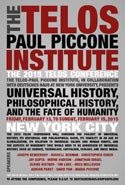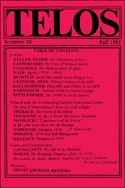 In his Critique of Judgment, Kant explains how “subjective judgments” resemble theoretical claims about truth in that they claim universal assent, even though they do not have an objective basis for doing so. In other words, although they are subjective, they assert a strict sense of objectivity and claim a universal ground for truth. Therefore, the proof of the validity of these judgments cannot be found in a specific “observable feature” of the object, but rather in the “actual intersubjective agreement.” While truth in his third Critique is neither a matter of the intellect nor a thing reducible to conceptual realm, it seems that he offers a different sense of truth that influenced the major trends in continental philosophy. One can trace this sense of truth as it provides a ground not only to “test the limits of our historical era” but also “to go beyond them.”
In his Critique of Judgment, Kant explains how “subjective judgments” resemble theoretical claims about truth in that they claim universal assent, even though they do not have an objective basis for doing so. In other words, although they are subjective, they assert a strict sense of objectivity and claim a universal ground for truth. Therefore, the proof of the validity of these judgments cannot be found in a specific “observable feature” of the object, but rather in the “actual intersubjective agreement.” While truth in his third Critique is neither a matter of the intellect nor a thing reducible to conceptual realm, it seems that he offers a different sense of truth that influenced the major trends in continental philosophy. One can trace this sense of truth as it provides a ground not only to “test the limits of our historical era” but also “to go beyond them.”
|
|
||||
|
Telos Press Publishing · PO Box 811 · Candor, NY 13743 · Phone: 212-228-6479 Privacy Policy · Data Protection Copyright © 2025 Telos Press Publishing · All Rights Reserved |
||||
 Utopia is necessary: it alone “can rescue a very limited reality” (16). Without it we are shackled by the thoughts of others, confined within realms of possibility defined by those in power. Peace, disarmament—both can seem idealistic, even ridiculous. But our incredulity results not only from the distance of these concepts from the everyday. We have been taught to understand pacifism as impractical, disarmament as suicide.
Utopia is necessary: it alone “can rescue a very limited reality” (16). Without it we are shackled by the thoughts of others, confined within realms of possibility defined by those in power. Peace, disarmament—both can seem idealistic, even ridiculous. But our incredulity results not only from the distance of these concepts from the everyday. We have been taught to understand pacifism as impractical, disarmament as suicide. 

